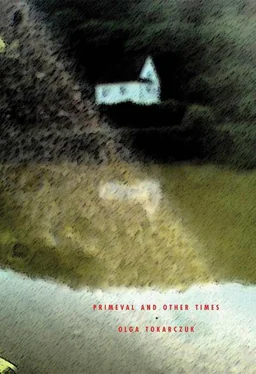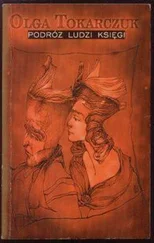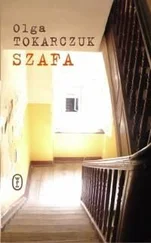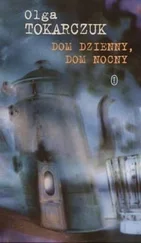Two months later, when the psychological wounds inflicted on Izydor by the postal service were starting to heal, an official letter came, in which the Polish Post Office apologised to “Citizen Niebieski Izydor” for the fact that it had failed to find the lost letter. At the same time, the German photography firm declared that it had not received a registered letter from “Citizen Niebieski Izydor,” and so the postal services of both countries felt responsible for the lost letter and were offering “the aggrieved Citizen Niebieski Izydor” compensation of two hundred zlotys. At the same time, the Polish Post Office apologised for the ensuing incident.
That was how Izydor came into possession of a large sum of money. He immediately gave Misia a hundred zlotys, and with the rest he bought himself a stamp album and several sheets of stamps for registered letters.
Now, whenever there was no answer to a letter, he went to the post office and registered a complaint. If the letter turned up, he had to pay 1 zloty and 50 groszy for the cost of the complaint. That wasn’t much. Meanwhile he was always finding that one of the dozens of letters he sent had got lost – either they had forgotten to deliver it, or the foreign addressees had forgotten they had received it and, baffled by the forms the Polish post had sent them, had answered non, nein, no.
So Izydor kept receiving money. He became a legitimate member of the family. He was capable of earning a living.
In Primeval, like everywhere in the world, there are places where matter creates itself, coming into being on its own out of nothing. They are always just small chunks of reality, not essential to the whole, and as a result they are no threat to the balance of the world.
There is a place like that on the embankment by the Wola Road. It looks inconspicuous, like a molehill, like an innocent little graze on the earth’s flesh that never heals. Only Cornspike knows about it and stops on the way to Jeszkotle to watch the world creating itself. There she finds strange things and non-things: a red stone not like any other stone, a piece of gnarled wood, some prickly seeds that later produce some feeble little flowers in her garden, an orange fly, and sometimes just an odour. Cornspike sometimes gets the feeling that the inconspicuous molehill also creates a space, and that the roadside embankment is gradually getting bigger. In this way each year Malak’s field gets bigger, where in complete ignorance he plants potatoes.
Cornspike dreamed up the idea that one day she would find a child there, a little girl, and would take her home to fill the gap left by Ruta. But one autumn the molehill disappeared. For the next few months Cornspike tried to catch empty space in the act of bubbling forth, but nothing happened, so she realised the self-creation outlet had gone off somewhere else.
For a while the fountain in the Taszów market square seemed to be another such place. The fountain produced noises, whispers and rustles, and sometimes a sort of jelly-like substance was found in its water, matted balls of hair, and the green parts of a large plant. People realised the fountain was haunted, so they demolished it and built a parking lot.
And of course there is a place in Primeval, as everywhere in the world, where reality rolls up and leaks from the world like air from a balloon. It appeared in the fields beyond the Hill just after the war, since when it has been growing more and more distinctly. A crater has formed in the ground, which sucks down yellow sand, tufts of grass, and field stones into nowhere.
The Instructive game for one player is strange, and so are its rules. Sometimes the player feels as if he has experienced all this before, that he has already played something like it or that he knows the Game from his dreams, or maybe from the books in a local library he visited when he was a child. This is what it says in the instructions about the Sixth World:
God created the Sixth World by accident, and then went away. He made it any old how, haphazardly. His work was full of holes and mistakes. Nothing was obvious, nothing permanent. Black ran into white and evil sometimes seemed to be good, just as good often looked like evil. So once left to its own devices, the Sixth World began to create itself. Tiny acts of creation appeared out of nowhere in time and space. Matter managed to sprout into things of its own accord. By night objects replicated, stones and veins of metals grew in the ground, and new rivers began to flow in the valleys.
People learned to create by the force of their own will, and called themselves gods. Now the world was filled with millions of gods. But their will was subordinate to impulse, and so chaos returned to the Sixth World. There was too much of everything, though something new was always coming into being. Time started gathering speed, and people started dying from the effort of trying to make something that did not yet exist.
Finally God came back and, vexed by all the mess, destroyed the entire creation with a single thought. Now the Sixth World stands empty and silent as a concrete tomb.
One day, when Izydor went to the post office with a wad of letters, the clerk in the shiny apron suddenly put her face to the window and said:
“The postmaster is very pleased with you. He says you’re our best customer.”
Izydor froze, with his copying pencil poised above a complaint form.
“How come? I’m always exposing the post office to losses. But it’s all in keeping with the law, I don’t do anything wrong…”
“Oh, Izydor, you don’t understand a thing.” Sliding her chair forward with a scraping noise, the woman leaned halfway out of the window. “The post office earns money because of you. That’s why the postmaster is pleased there’s someone like you at our office. You see, the way the contracts between countries work, for every lost international letter the postal services of both countries pay half the cost each. We pay you in zlotys, and they pay in marks. We convert those marks for you according to the state exchange rate, all in keeping with the rules. We make a profit, and so do you. Nor does anyone lose by it either. Well, aren’t you pleased?”
Izydor nodded half-heartedly.
“Yes.”
The clerk backed away again. She took Izydor’s complaint form and began to stamp it automatically.
When he got home, there was a black car outside the house. Misia was waiting for him in the doorway. Her face was grey and immobile. At once Izydor realised something terrible had happened.
“These gentlemen have come to see you,” said Misia in a wooden tone.
Two men were sitting at the table in the living room wearing light raincoats and hats. It was about the letters.
“To whom do you write letters?” asked one of the men, and lit a cigarette.
“Well, to tourist firms.”
“That sounds like spying.”
“What on earth would I have to spy on? Thank God, when I saw the car I thought something had happened to the chil-dren…”
The men exchanged glances, and the one with the cigarette gave Izydor an ominous look.
“Why do you need so many colour magazines?” asked the other one out of the blue.
“I’m interested in the world.”
“You’re interested in the world… What are you so interested in the world for? Do you know what you can get for spying?”
The man drew his hand swiftly across his neck.
“Your throat cut?” asked Izydor in terror.
“Why don’t you work? What do you live off? What’s your occupation?”
Izydor felt his hands sweating and began to stammer.
“I wanted to join the monastery, but they wouldn’t take me. I help my sister and my brother-in-law. I chop wood, I play with the children. Maybe I’ll get a pension…”
Читать дальше












